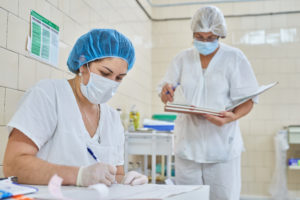Tips for Nova Scotia Patients Seeking Medical Help During the COVID-19 Outbreak

In the midst of the coronavirus outbreak in Canada, many Nova Scotians have urgent questions. In our other recent blog, we discussed the possible impacts of the COVID-19 virus on legal matters and insurance claims. In this article, we hope to provide some guidance for Nova Scotians who need medical attention (for whatever reason) during this fluid and unprecedented time.
In the coming weeks and months, healthcare facilities like medical clinics and hospitals may present medical negligence risks to patients visiting their offices and emergency rooms. Breaches of the standard of care we are legally allowed to expect of our medical professionals are likely to increase as the pandemic increased. Studies indicate that doctors and nurses are more prone to mistakes when they are tired and overworked. When resources are stretched, important medical information gets overlooked.
Given the increased risk of medical errors during this difficult time, here are a few tips for Nova Scotian patients seeking medical care during the Covid-19 outbreak:
Seek medical help over the phone first (if you can) – Health Officials in Nova Scotia are recommending that patients who feel sick or are in the help of non-emergent medical attention, to call a registered nurse on “8-1-1”. You will have the ability to speak with a nurse around the clock, seven days a week. These nurses can provide information about some medical services that may be reasonably available to you and some basic treatment options. Calling 8-1-1 as a first option will help free up resources to help doctors and nurses meet the standard of care in the clinical/hospital settings.
Ask about waiting room arrangements before going to see your doctor – Health Canada has asked all physician clinics and hospitals to have a clear strategy, and make efforts, to protect patients from contracting COVID-19 when seeking medical help. A common method these clinics are using is separating patients who do not have any respiratory symptoms from those who do while they are in a waiting area. Most hospitals and medical clinics have implemented very good strategies. However, if you go to a clinic without this kind of strategy, you may be putting yourself (or others) at risk. You’d be smart to call in advance about the waiting room arrangements.
Know your medical professional’s responsibilities – Given the ever-increasing number of patients with COVID-19, it is important to appreciate that the doctor or nurse treating you may have also recently treated a patient exposed to the virus. All doctors and nurses treating potentially infected patients are required to wear personal protective equipment like masks, gloves, and gowns. As much as possible, these medical professionals should keep a reasonably safe distance from you. Hospitals and professionals should be regularly sanitizing surfaces and washing hands properly.
If you have questions about medical malpractice or were hurt in an accident and are seeking the help of an experienced personal injury lawyer, contact us today to schedule a free consultation and learn more about how we can meet you remotely to discuss your questions or review your injury claim.






















